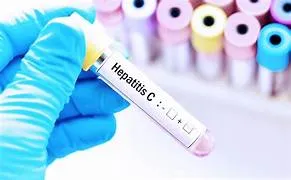
NU Hospitals, a pioneer in nephrology and urology care, has achieved a groundbreaking milestone in infection control by eliminating Hepatitis C virus (HCV) transmission among maintenance hemodialysis patients. This remarkable achievement was made possible through a strategic partnership with MedLern, whose advanced digital training platform and tools played a transformative role in ensuring comprehensive adherence to infection control protocols.
A recent clinical audit conducted at NU Hospitals revealed an incredible shift from high-risk scenarios to a zero-infection environment. This transformation was driven by the implementation of evidence-based protocols and rigorous staff training facilitated by MedLern’scutting-edge digital solutions. For patients undergoing dialysis, the risks of HCV transmission are significant, with nearly one in five cases resulting from challenges in maintaining strict hand hygiene and infection control during complex procedures. NU Hospitals’ success in eliminating these risks sets a new benchmark for patient safety in dialysis care.
The hospital’s zero-infection protocol included advanced measures such as real-time hand hygiene monitoring, individualized patient supply management, and strategic cohort nursing for HCV patients. Closed-circuit surveillance systems, enhanced machine cleaning procedures, and robust blood spill management protocols further fortified this strategy. Achieving consistent adherence to these protocols required innovative training and knowledge dissemination, which MedLern provided through its intuitive digital tools.
MedLern’s adaptive learning modules, interactive clinical simulations, and multilingual resources enabled hospital staff to grasp and implement critical infection control measures effectively. The platform’s ability to provide real-time updates on protocols and track performance ensured seamless compliance. This holistic approach empowered NU Hospitals to establish a scalable infection control framework, which is now a model for healthcare institutions worldwide.
Dr. Prasanna Venkatesh, Managing Director and Senior Consultant Paediatric Urologist at NU Hospitals, emphasized the importance of the collaboration, stating, “MedLern’s Healthcare Education Digital Platform has fundamentally revolutionized our staff training approach. Their innovative platform enables consistent, real-time updates of critical infection control protocols, ultimately saving lives and substantially improving patient safety.”
Deepak Sharma, CEO of MedLern, highlighted the broader implications of the partnership, saying, “Our Digital Healthcare Training Platform is strategically designed to bridge critical knowledge gaps in healthcare settings, ensuring intuitive dissemination and retention of knowledge from the classroom to the point of care. This collaboration with NU Hospitals demonstrates how innovative technology can comprehensively transform infection control strategies and ultimately save lives.”
This achievement underscores the critical role of continuous monitoring, adaptive practices, and digital learning solutions in modern healthcare. NU Hospitals’ efforts have not only eradicated HCV transmission within their dialysis unit but also created a replicable model for other institutions globally.
About NU Hospitals
NU Hospitals, with over 25 years of expertise, is a leader in nephrology, urology, and fertility (IVF) treatment. Known for pioneering advancements like Karnataka’s first kidney transplant and innovative endoscopic procedures, NU Hospitals offers highly specialized care for rare and complex conditions. Its comprehensive, compassionate approach ensures cutting-edge healthcare for all patients.
About MedLern
MedLern is a leading digital learning platform designed for healthcare professionals and institutions. Founded by entrepreneur and Wharton alumnus Sameer Shariff, MedLern offers scenario-based learning modules, intuitive resuscitation training, and continuous protocol updates. With a mobile-first approach, MedLern enables round-the-clock learning, bridging critical knowledge gaps and enhancing patient outcomes.






